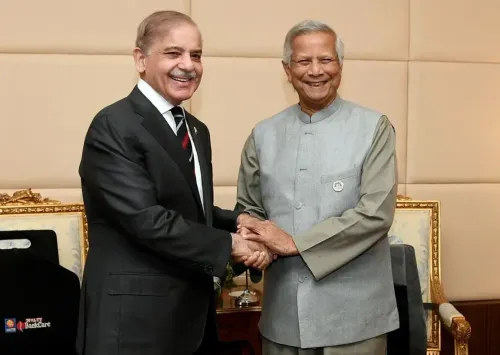Has Pak's 27th Constitutional Amendment Enabled Gen Asim Munir to Become the First Chief of Defence Forces?

Synopsis
Key Takeaways
- General Asim Munir appointed as Chief of Defence Forces.
- The amendment aims for better military coordination.
- Government defends the changes amid political criticism.
- New structure enhances the national strategic command.
- Honorary ranks now include Field Marshal.
Islamabad, Nov 9 (NationPress) Following the approval of the 27th Constitutional Amendment Bill in Pakistan, Army Chief General Asim Munir is poised to take on the influential role of Chief of Defence Forces (CDF). This newly created position aims to foster enhanced coordination and unified command among the three military services, according to local media.
As reported by Dawn, the amendment, which was introduced in Parliament after receiving Cabinet endorsement, brings significant modifications to Article 243 of the Constitution, which outlines regulations concerning the armed forces. Under this revised structure, both the Army Chief and the Chief of Defence Forces will be appointed by the President based on the Prime Minister's counsel.
The report further indicates that the Army Chief, who will simultaneously hold the position of CDF, will be responsible for appointing the head of the National Strategic Command in consultation with the Prime Minister. The leader of this command will be selected from the Pakistan Army.
This legislative change follows the government's prior decision to elevate Gen Munir to the rank of Field Marshal, making him only the second individual in Pakistan's history to earn this title, which includes lifetime benefits. The amendment also empowers the government to promote officers from the armed forces to honorary ranks such as Field Marshal, Marshal of the Air Force, and Admiral of the Fleet, conferring them with lifetime status and entitlements.
According to government sources, Dawn characterizes this initiative as a monumental restructuring of Pakistan's defense framework aimed at facilitating institutional coordination among the Army, Navy, and Air Force. Nonetheless, the amendment has faced intense backlash from the opposition party, Pakistan Tehreek-e-Insaf (PTI), which labeled it as “a threat to the foundation of constitutional democracy.”
As stated by Pakistan Today, Deputy Prime Minister Ishaq Dar defended the legislative move, asserting that it would be presented “in alignment with the Constitution and after consulting all stakeholders.”










